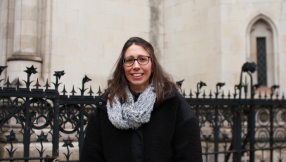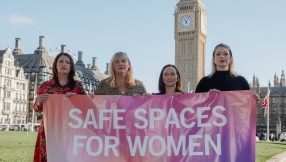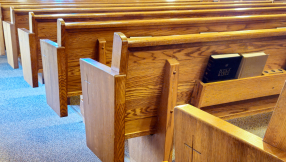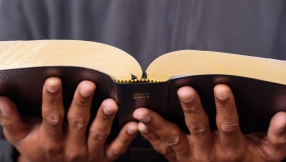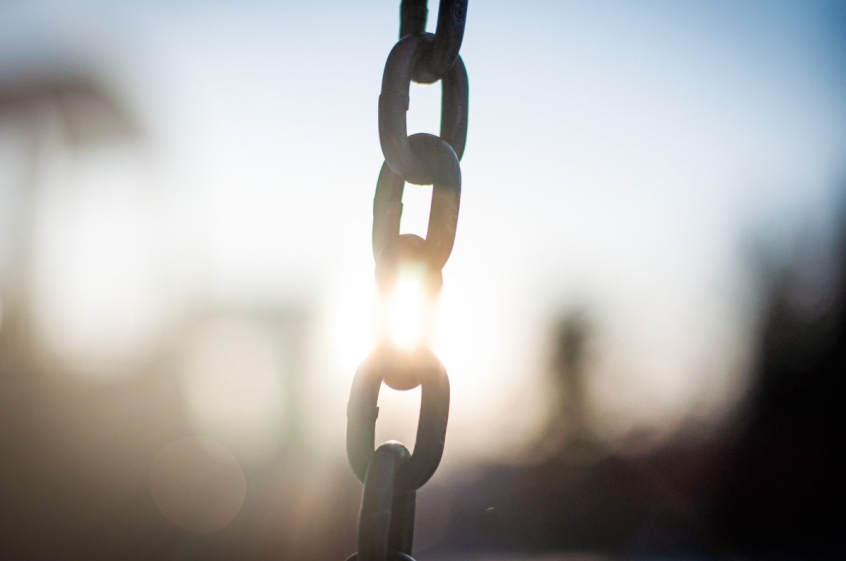
Today, I received a text message from a colleague at International Justice Mission asking if I could urgently pray for a group of children they had just rescued from slavery with local police. Some of them are in a very bad way.
It is Anti-Slavery Day today. Every year, as 18 October comes round, it strikes me afresh that we really shouldn't still need an Anti-Slavery Day, not in 2020. But the brutal reality is that more than 40 million people are in slavery today - that's more men, women and children held in exploitative situations than ever before in history. People like these children need our urgent prayer.
Last week, Walk Free released new data suggesting that 1 in every 130 women and girls are living in modern slavery globally. If you take a moment to pause and think about that, as people who believe in a God of justice, I can't help but think we need to do something urgently.
In the face of such monumental injustice though, 'doing something' can feel overwhelming. Yet today, as well as feeling angry at the state of slavery, I am also filled with hope.
I work for International Justice Mission - one of the largest international anti-slavery organisations. We work with local authorities around the world to tackle many forms of slavery and violence, including human trafficking, forced labour and the online sexual exploitation of children.
The reality of slavery today is chilling and brutal but we are seeing that change is possible.
We have seen slavery decrease by up to 86% in places where IJM has worked alongside authorities to find and free people and hold traffickers and slave-owners to account.
I truly believe that ending slavery in our lifetime is possible but it will require a global movement - a movement in which the Church must play a vital part.
This year - more than ever - the world is teetering on a knife edge. Our frontline staff around the globe are witnessing an alarming rise in risks of slavery and violence which they are working tirelessly to counter.
Now's certainly the moment to remember God's call, "Let my people go."
The pandemic has resulted in a loss of income for millions which means that many vulnerable people are increasingly at risk of being taken advantage of by slave owners and traffickers who will stop at nothing to trick and trap people.
The World Bank estimates that 49 million more people will be forced into extreme poverty this year. We must not let the exploiters win.
In these last few months, one of the things that has given me the greatest hope that we can stop the exploiters is seeing the way that churches and supporters have stepped up action - even in a pandemic. As a result, since March, our teams have helped to find and free over 3,000 people from slavery and oppression.
Churches around the world have been giving, praying, acting and raising their voices to help make this possible. When the church acts, change happens.
Just two weeks ago, a thousand churches in Ghana took a stand against slavery, educating their congregations, advocating for change and challenging traffickers who might be in their midst.
In the Dominican Republic, this summer, a church flagged concerns about a 14-year-old girl who they feared had been sold for child marriage - and they were right. Police investigated the situation and the girl was being sexually exploited by a 58-year-old man. She's now free thanks to the local church. When we choose to act, we see freedom come faster.
And action is happening locally too - IJM UK's 'Freedom Churches' are taking a lead, with some even running anti-trafficking groups in their own communities.
I'm always so personally encouraged by the amazing stories of Christians who have been moved to 'do something', and have found incredible ways to stand up for justice and freedom - both for us and for other organisations, who are at the forefront of work to stop slavery.
Last week, Christina, a lawyer who worked with IJM to stop online sexual exploitation of children in the Philippines, ran the virtual 'London Marathon' in the rain, largely on her own. She was more determined than ever because she had seen first-hand the impact of this dark type of exploitation and knows that more children are at greater risk due to the pandemic. She raised enough to fund a whole rescue operation!
Then there's Chris, who has been running hill trails every month throughout 2020 after hearing the story of a young mum who was trapped in slavery in a wood-cutting facility after taking out a small loan to pay for her sick daughter's healthcare. Her little girl was the same age as his, and every time he felt like giving up, he thought of her.
For me, when I need to remember why this fight is so vital, I think of Esther, who was just a little girl when she was sold into slavery on Lake Volta in Ghana. It took a decade for her to be rescued. But when she was found last year, the first thing she did with her freedom was to tell us where her friends were still trapped, so that they could be free too.
She inspires me to use my freedom to free others.
This Anti-Slavery Day, I would love to encourage churches and Christians to join with us and other organisations in taking a stand against slavery at this critical moment. When you choose to use your freedom to bring freedom, we get one step closer to ending slavery in our lifetime.
I would love you to join me as together we build a future where all are free.
David Westlake was International Director at Tearfund before joining International Justice Mission as its CEO in 2016. Find out more about IJM's work at www.ijmuk.org










